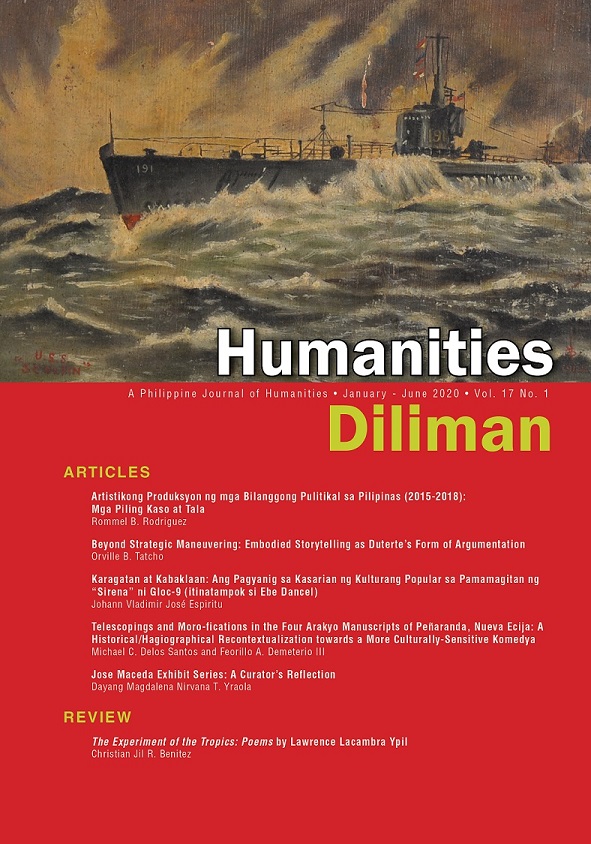Artistikong Produksyon ng mga Bilanggong Pulitikal sa Pilipinas (2015-2018): Mga Piling Kaso at Tala
Abstract
During the 1920’s, prisoners made use of their time in producing wood products that were sold to foreign and local buyers. This system did not only make an assembly line of prisoners; it was also a means of reforming the prisoners. Bilibid prisoners were transformed into skilled laborers. Rehabilitation and isolation of prisoners created profit for the benefit of the administration of the penal system and thus as a source of funding. These products also served as material artifacts that project the productive condition of local criminals. Moreover, the products manufactured inside Bilibid manifested the so called effectiveness of the disciplining power of the penal system by the Americans. From this historical context, the paper aims to shed light on how political prisoners transformed their prison cell from a space of oppression into a place of subversion by analyzing selected cases of political prisoners from 2015-2018. It can also be seen here that the artistic productions of political prisoners are concrete manifestations on how they re-shaped and re-imagined their life experiences during imprisonment.


